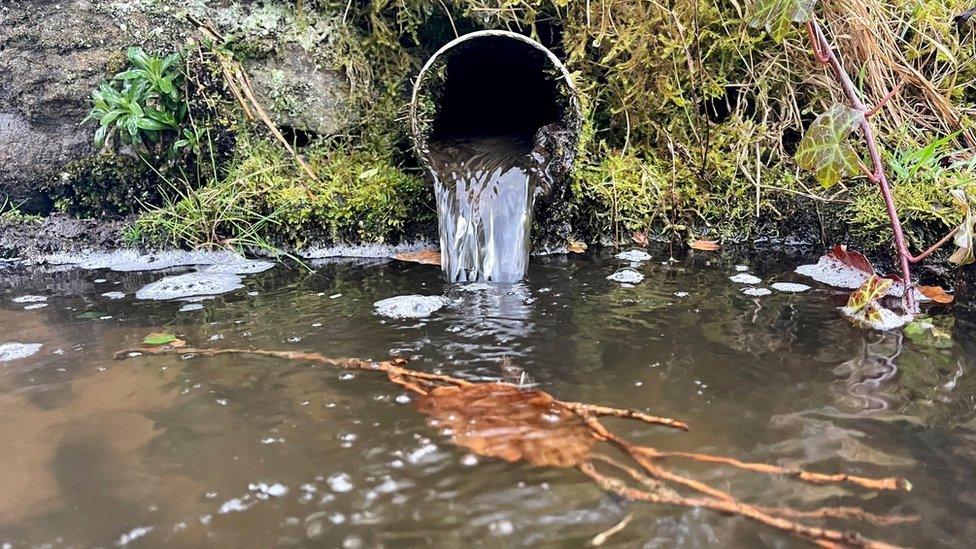Staveley sewage discharged hundreds of times into protected river
- Published
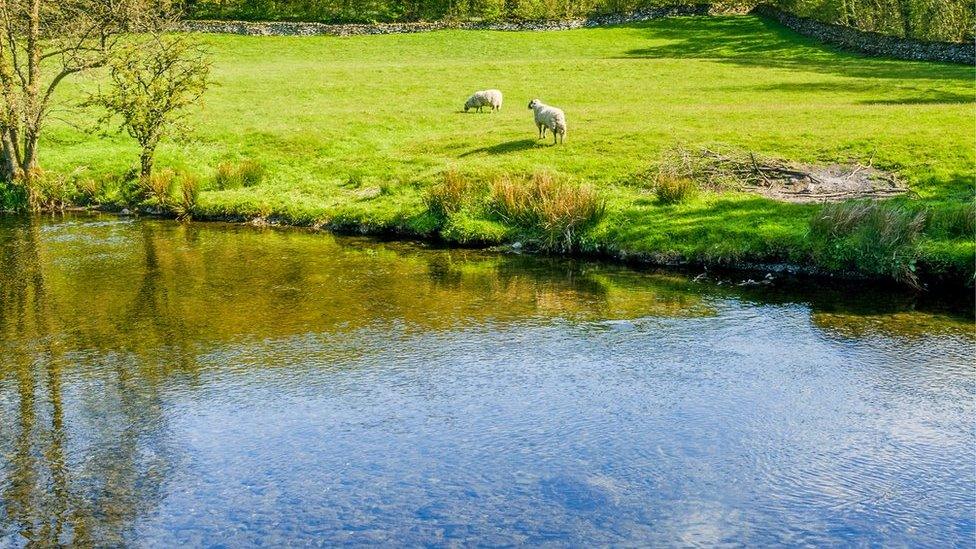
The River Kent runs north from Staveley and south through Kendal and to the sea
Hundreds of "emergency discharges" have poured untreated sewage into a protected river over three years.
Water company United Utilities' figures show 1,050 storm tank spills into the River Kent in Cumbria during 2018-20.
Residents in nearby Staveley say the local sewer network floods the streets and gardens about 10 times a year.
The company said it had made repairs and more were scheduled but it had no plans to invest in the village network as it had to prioritise investment.
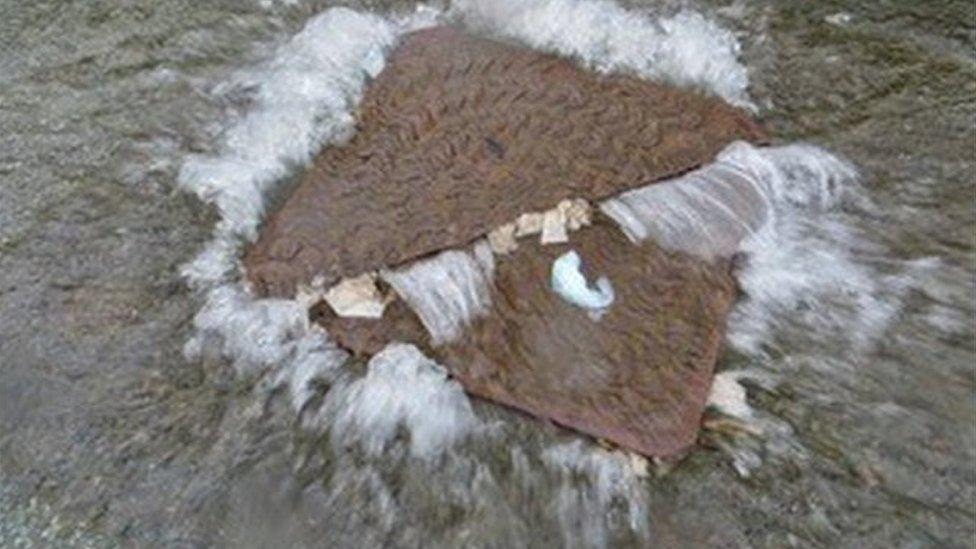
Residents say roads and gardens flood about 10 times a year
Campaign group Sustainability and Energy Network in Staveley (SENS) said raw sewage had flooded the village's roads during storms 61 times since 2015 because the waste water infrastructure was "inadequate".
Isobel Stoddart, who chairs the group, said figures provided by United Utilities after an Environmental Information Regulations request by the parish council showed "the current wastewater management system is not working".
She said: "An 'emergency' discharge of untreated effluent has occurred 1,000 times in the last three-year period directly into the River Kent - that is an average of nearly once a day.
"Not only is the river extremely popular with local bathers but it is also a SSSI [Site of Special Scientific Interest] as one of the few remaining homes for the UK's only native, freshwater, white-clawed crayfish, which is on the global IUCN [International Union for Conservation of Nature] red list of threatened species."
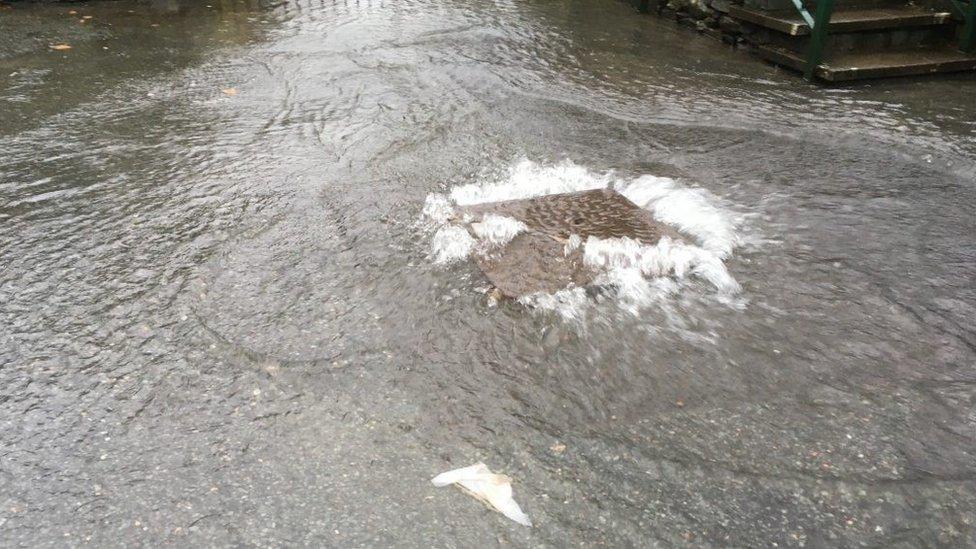
Campaigners say the sewage pollution is unpleasant and unhealthy
The parish council said the system had reached capacity and it would refuse to back any new housing developments until it was improved.
United Utilities said it had made repairs to reduce the "large amount" of surface water entering the sewers and further work, delayed by the pandemic, was due to start.
It did not discharge untreated effluent in dry weather and was permitted to do so during bad weather "as long as certain conditions are met", it added.

Follow BBC North East & Cumbria on Twitter, external, Facebook, external and Instagram, external. Send your story ideas to northeastandcumbria@bbc.co.uk, external.
Related topics
- Published31 March 2021
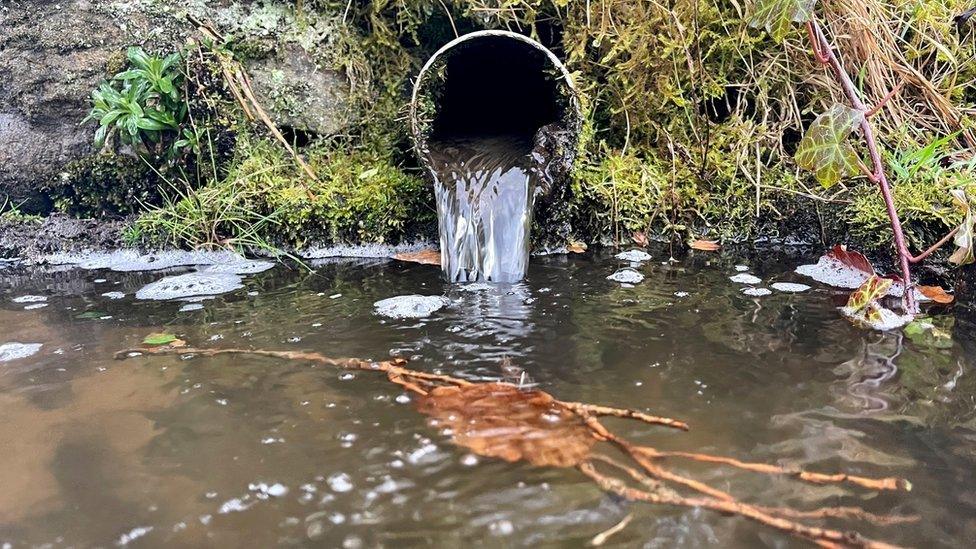
- Published11 March 2021
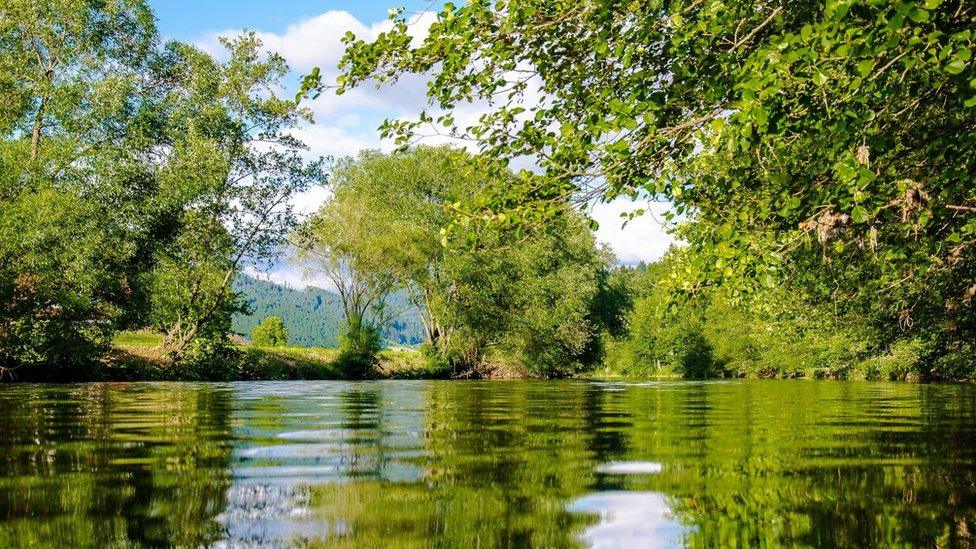
- Published12 April 2021
